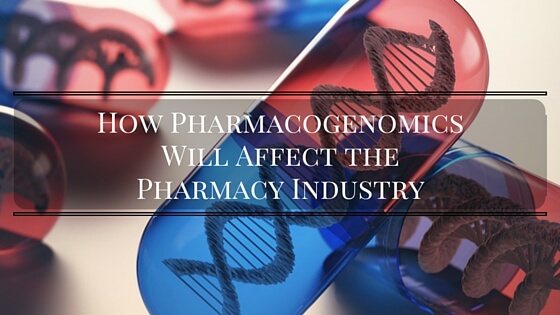How Pharmacogenomics Will Affect the Pharmacy Industry
Posted by Emily Thompson on Sep 2nd 2020

Pharmacogenomics promises to provide a number of benefits that will allow both physicians and pharmacies to improve the quality of patient care. Conventional methods for prescribing medications often utilize a trial and error approach, one that requires pharmacists to educate patients regarding various side-effects and drug interactions and leaving physicians with no other option but to reassess results and effects in order to alter and adjust a treatment strategy. Pharmacogenomics can provide a safer and more effective alternative by combining traditional pharmaceutical science with detailed genetic information in order to optimize the effectiveness of a treatment strategy, as well as reducing or eliminating the risk of adverse reactions.
Individualized Drug Therapy
Genetic variation can significantly influence the response a patient has to a particular medication or treatment strategy. Pharmacogenomics offers a way to more accurately assess the risk of unwanted and potentially dangerous side effects as well as any negative or potentially dangerous interactions caused when medications are combined. This approach allows for customized drug therapy and treatment strategies to be tailored for the individual patient. Determining if a patient carries a particular genetic variation that may affect treatment or increase the risk of an adverse reaction to specific drug therapies allows both physicians and pharmacists to avoid many common problems while providing their patients with a superior level of care.
Using Genetic Information to Create More Powerful Medicines
The potential benefits of pharmacogenomics extend far beyond just ensuring that the right medications are able to be prescribed. Pharmaceutical companies can use genetic information to create drugs that are more powerful and effective. Drug therapies that have been developed to target specific diseases and produce optimal therapeutic effect in patients with specific genetic variances will be able to improve responsiveness while mitigating or even eliminating the risk of a negative reaction or unwanted and potentially harmful side-effects.
Determining Appropriate Dosages With Greater Accuracy
Genetic information can provide a more accurate alternative to conventional methods for determining the most effective dose of a medication. Prescribing dosage based on the weight and age of a patient can lead to many issues and fine-tuning dosages through trial and error can decrease the overall quality of patient care. Calculating dosages based on detailed genetic information can reduce the amount of time and effort that pharmacists and other healthcare professionals spend assisting each patient. The ability to determine optimal dosages with greater accuracy also decreases the risk of accidental overdose.
Reduced Healthcare Costs
The high-cost of quality healthcare is a serious issue, one that continues to have a negative impact on the lives of countless patients who lack the financial resources needed to obtain the best care. Pharmacogenomics promises to decrease healthcare costs in a variety of ways which may include reducing any of the following:
1. The frequency of adverse drug reactions.
2. The total number of failed drug trials.
3. The length of time patients are required to take a medication.
4. The effects and severity of a disease process.
5. The number of medications patients are required to take.
Improved Vaccines
Vaccines that are created using the right genetic material may provide the same benefits as existing treatments while eliminating many of the risks. In addition to being low-cost, easy to store and stable, these vaccines will be able to activate an immune response with less risk of secondary infections. Pharmacogenomics will create vaccines that can be specifically engineered to carry multiple strains of a pathogen, ensuring that vaccinations will be more effective in conferring immunity to specific diseases.
